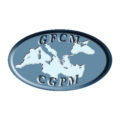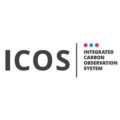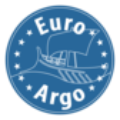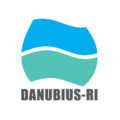Infrastructures
EMBRC ERIC (European Marine Biological Resource Centre)
The European Marine Biological Research Centre (EMBRC-ERIC) is a European Research Infrastructure Consortium of international relevance. Part of the ESFRI roadmap since 2008, and established as an ESFRI Ladmark in 2018, EMBRC is designed to further fundamental and applied marine biology and ecology research. Capacity of centre is hosted at renowned marine biological stations and institutes - the EMBRC Operators, across EU and EU-Associate countries. By organising access to these state-of-the-art facilities, EMBRC-ERIC provides the necessary and relevant services, facilities and technology platforms to study marine organisms and ecosystems. EMBRC-ERIC further promotes the development of blue biotechnologies by supporting fundamental and applied research activities towards innovation in therapeutics, cosmetics, nutrition, aquaculture, and fisheries, among others.
EMSO ERIC (The European Multidisciplinary Seafloor and water column Observatory)
The European Multidisciplinary Seafloor and water column Observatory (EMSO) aims to explore the oceans, to gain a better understanding of phenomena happening within and below them, and to explain the critical role that these phenomena play in the broader Earth systems. EMSO consists in a system of regional facilities placed at key sites around Europe, from North East to the Atlantic, through the Mediterranean, to the Black Sea. Observatories are platforms equipped with multiple sensors, placed along the water column and on the seafloor. They constantly measure different biogeochemical and physical parameters, that address natural hazards, climate change and marine ecosystems. EMSO offers data and services to a large and diverse group of users, from scientists and industries to institutions and policy makers. It is an extraordinary infrastructure to provide relevant information for defining environmental policies based on scientific data. EMSO is a consortium of partners sharing in a common strategic framework scientific facilities (data, instruments, computing and storage capacity).
GFCM (General Fisheries Commission of the Mediterranean)
GFCM is a regional fisheries management organization to ensure the conservation and the sustainable use, of living marine resources at the biological, social, economic and environmental level, as well as the sustainable development of aquaculture in the Mediterranean and in the Black Sea. The Commission has the authority to adopt binding recommendations for fisheries conservation and management in its area of application and plays a critical role in fisheries governance in the region.
ICOS ERIC: Integrated Carbon Observation System
Integrated Carbon Observation System (ICOS) is a pan-European research infrastructure which provides harmonised and high-precision scientific data on carbon cycle and greenhouse gas budget and perturbations. ICOS RI promotes fundamental understanding of carbon cycle, greenhouse gas budgets and perturbations and their underlying processes. To facilitate the research that will lead to this understanding, ICOS RI offers a high precision, long-term network of stations, which measure greenhouse gas fluxes from ecosystems and oceans, and greenhouse gas concentrations in the atmosphere.
JERICO - The Joint European Research Infrastructure network for Coastal Observatory
JERICO-RI is an integrated pan-European multidisciplinary and multi-platform research infrastructure dedicated to a holistic appraisal of coastal marine system changes. It is seamlessly bridging existing continental, atmospheric and open ocean RIs, thus filling a key gap in the ESFRI landscape. JERICO-RI establishes the framework upon which coastal marine systems are observed, analysed, understood and forecasted. JERICO-RI enables open-access to state-of-the-art and innovative facilities, resources, FAIR data and fit-for-purpose services, fostering international science collaboration.
Euro-Argo ERIC: European contribution to the ARGO program
The European contribution to the International Argo Programme (EURO-ARGO) is a distributed Research Infrastructure that organizes and federates the European contribution to the international Argo programme for in situ ocean observations. EURO-ARGO aims at sustaining the European contribution to the global Argo array of profiling floats which measure temperature and salinity every 10 days throughout the deep global oceans to deliver data both in real-time and delayed mode for climate change research and monitoring as well as operational services such as Copernicus.
DANUBIUS-RI: The International Centre for Advanced Studies on River Sea Systems
The International Center for Advanced Studies on River –Delta – Sea Systems DANUBIUS-RI is a pan-European distributed research infrastructure supporting interdisciplinary research on large river-sea systems. DANUBIUS-RI will fill the gap of fragmented research on European research on river-sea systems, drawing on existing research excellence across Europe, enhancing the impact of European research while maximizing the return on investment. It will provide access to a range of European river-sea systems, facilities and expertise; a ‘one-stop shop’ for knowledge exchange in managing river-sea systems; access to harmonized data; and a platform for interdisciplinary research, inspiration, education and training.







